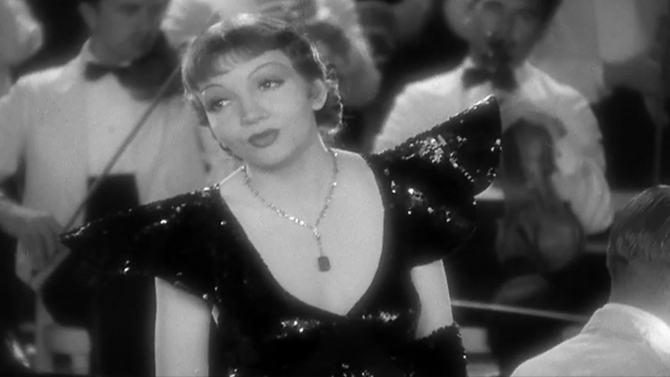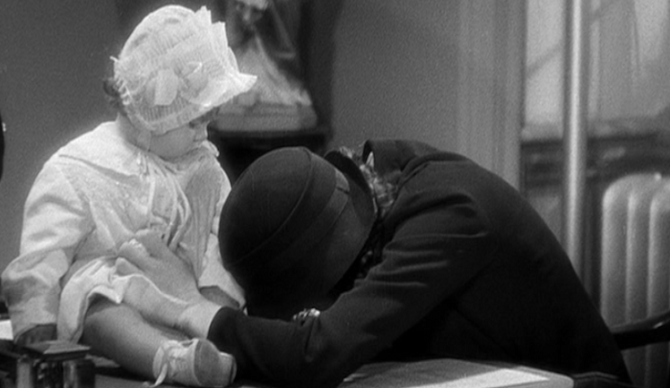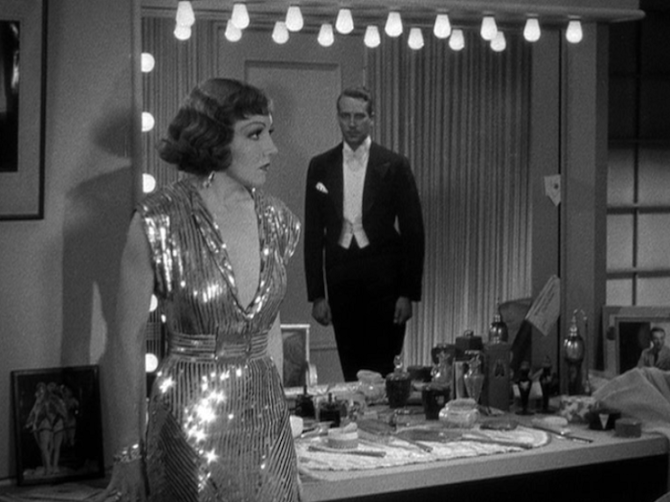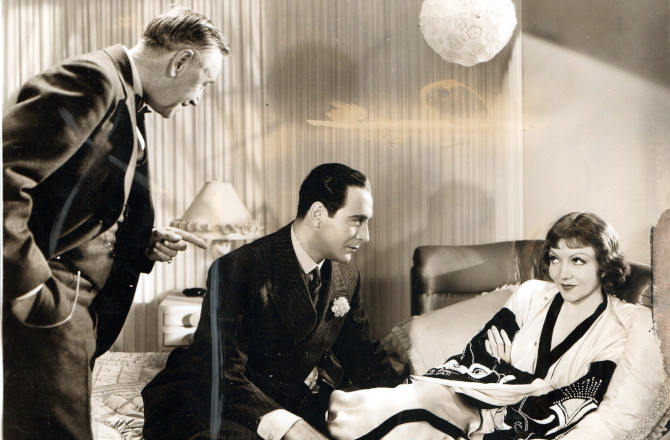Sally Trent: “Don’t let any man make a sucker out of you. Make `em know what you’re worth. Anything they get for nothing is always cheap”.
A pre-Code movie that by today’s standards might not seem all that controversial, but would not have made it to theatres just one year later (when the Production Code started to be enforced), 1933’s Torch Singer, directed by Alexander Hall and George Somnes, provides an intriguing snapshot of the time.
Centred on a strong female performance (something less rare than you might expect for the 1930s) by Claudette Colbert, she plays Sally Trent, a young woman who quickly slept with her first love. . . only to find out she’s pregnant. Pause!
With the soon-to-be child’s father, Michael Gardner (David Manners), who just so happens to come from a wealthy family, having flown off to China for an extended business trip, she is up the proverbial creek without a paddle. Making her way to a charity ward of a hospital, she gives birth, looking to raise the child on her own.
Teaming up with a spitfire Polish dame named Dora Nichols (Lyda Roberti) – who is in the same predicament, she works a decent job while Sally takes care of both of their babies at home. A somewhat manageable situation, it does not take long for the blonde roommate to find a new man (who she quickly marries), leaving our protagonist in her most difficult situation yet. Of note, this is the last we see of the Nichols’ character – a shame, as she is bold, blunt, and highly entertaining (sadly, actress Roberti had a heart attack just six years later, dying at the young age of thirty-one).
With no avenue for money while caring for a baby (Gardner’s aunt spurns her when she comes looking for her to raise the baby – thinking the whole thing is some sort of ploy. . . and that, even if it were true, her nephew would be better off without this former chorus girl), Sally is forced to give up the baby for adoption, her only caveat – that the adoption agency promises to make sure her name is Sally (the same as hers).
In short order, the tortured young woman transforms her burden in life (fusing it with her natural ability), becoming the most desirable torch singer in town. . . and the most notorious as well. Her name now Mimi Benton, she is also known for her partying antics, late night alcoholic escapades, as well as her group of enabling friends – let’s just say that men melt before her very eyes. Colbert, in many ways, is a fascinating casting choice, as her cherub-like baby face is in juxtaposition to the shimmering little black dresses she wears, her innocent look in sharp contrast to her loose behaviour. . . and boy, does it work wonders.
Known for her showstopper – “Give Me Liberty or Give Me Love”, her successful career, posh apartment, and loads of money do very little in easing the memory of her long held secret. This partying lifestyle a facade for her deep melancholy, she fortuitously meets Tony Cummings (Ricardo Cortez), a radio mogul who (not shockingly) immediately notices the woman’s ‘talents’. She gets equally as lucky while visiting him at his office one day. . . as she falls into the role of ‘Aunt Jenny’, the star of a children’s radio program that is broadcast across all of New York City. Could this be the avenue needed to find her long lost child? Will her fling, off somewhere in China, eventually return home. . . and, if so, what will be his reaction to all that he has missed? If this does happen, where does this put radio mogul Tony?
Centred on Colbert’s stunning performance, she is easily able to do it all. . . crippling emotion, drunken wildness, nightclub numbers, and everything in between. A form of escapism for mothers in the 1930s, they could live through her experiences onscreen – a woman becoming ultra successful and living a large life, and, as you might already be able to guess this film’s conclusion, not feel guilty in the end.
So, what was it that made this film so controversial at the time? Well, sex out of marriage was a big no-no. . . add pregnancy to the list, and you’ve doubled the violations. . . then add the adoption, and the issues were really piling up. The low moral standards of a woman would also have broken the soon to be enforced rules – a debauched unmarried girl drinking the night away, dancing sexily and flirting with men, was in direct violation of numerous things listed in the oft nicknamed Hays Code. Though by no means as controversial as other pre-Code movies like Baby Face, Freaks, The Cheat, Island of Lost Souls, or numerous others, this one still has its so-called vices.
A quality, if somewhat unbelievable little drama, Torch Singer still delights. Featuring top notch performances, riveting live numbers, an emotive story with some great dialogue (on top of the opening quote, I really got a kick out of this one – “Well, I’ll tell you what happened to her. While you were touring China, she went through hell. It’s a nice place, you must go there someday.”), fantastic costume design, some of the cutest kids you’ll ever see, as well as an intriguing look back at a time long since passed, it is a concoction that you most definitely won’t be disappointed with. Lastly, I’d also like to mention something not often seen at the time. . . the wonderful and very friendly relationship Mimi has with her African American housekeeper Carrie (Mildred Washington – who sadly passed away the same year the movie was released at the young age of twenty-eight. . . after running for cover at the Graumans Chinese Theater during an earthquake. . . falling, she developed appendicitis, passing away during surgery). So, please listen to this broadcast. . . and don’t forget to get dolled up before you see this fashionable feature.





Dear Nikolai, reading your reviews are as much enjoyable as watching a movie. Thank you for putting up all your effort to give us insights.
Thanks Amit. Your comment is much appreciated. I’m so glad to you are enjoying them.